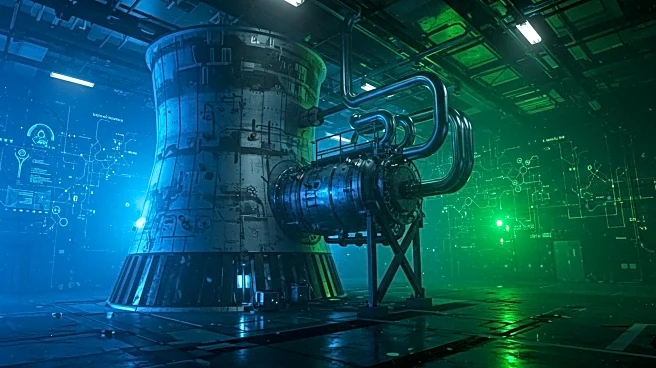What's Happening?
Iran's Foreign Minister Abbas Araqchi has stated that the country cannot completely halt cooperation with the International Atomic Energy Agency (IAEA), despite a new law requiring high-level approval for inspections. The law was passed following accusations that the IAEA paved the way for Israeli and U.S. attacks on Iran's nuclear sites. Araqchi emphasized the necessity of inspectors to continue their work, indicating ongoing negotiations with the IAEA.
Why It's Important?
Iran's decision to maintain cooperation with the IAEA, despite legislative restrictions, underscores the importance of international oversight in nuclear activities. The situation reflects the geopolitical tensions surrounding Iran's nuclear program, particularly following recent military actions by Israel and the U.S. The continuation of inspections is crucial for global non-proliferation efforts and regional stability. The international community is closely monitoring Iran's actions, as they have significant implications for diplomatic relations and security in the Middle East.
What's Next?
Negotiations between Iran and the IAEA are expected to continue, with potential implications for the future of Iran's nuclear program and international relations. The international community may exert pressure on Iran to ensure compliance with non-proliferation obligations. The outcome of these discussions could impact regional stability and diplomatic relations. The role of the IAEA in facilitating inspections and addressing security concerns will be crucial in shaping the future of Iran's nuclear activities.









